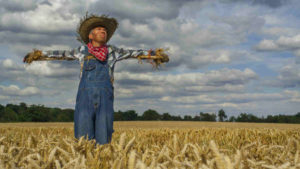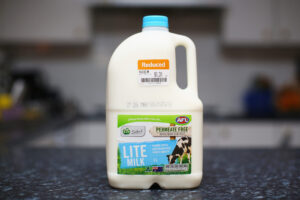Why agricultural land prices could escape the impact of a COVID-19-led recession

Pic: DKosig / iStock / Getty Images Plus via Getty Images
Agribusiness bank Rabobank predicts agricultural land prices won’t feel a COVID-19 recession.
The Netherlands-based bank thinks a tight sales market and high farm profitability will help the industry avoid the worst of a downturn.
The latter factor drives land prices in Australia and is at multi-year highs.
“Sustained periods of profitability provide farmers with the financial capacity to buy more land,” analyst Wes Lefroy said.
“And despite the drought that has gripped much of the east coast over the past three years, reported three-year average farm operating profits are at their highest point since at least 1990 in Western Australia, South Australia, Tasmania and Victoria.
“Further, they are above the 10-year average in all states, except New South Wales.”
Profitability will provide farmers with more capacity to buy land. But the current supply of available properties is not matching the levels of demand. In fact, according to Rabobank, these are at historical lows.
“We expect there will only be a very small number of sales which are due to financial circumstances, with improved production supporting cash-flow generation in drought-affected regions,” Lefroy said.
“On top of this, record-low borrowing costs have increased farmers’ capacity to service existing debt and interest rates are set to remain historically low for at least the next three years.”
COVID-19 fundamentals will make farmland investment attractive
COVID-19 has caused a plunge in returns on other assets such as equities and commercial properties.
While markets have recovered from their all time lows in March, many are still down for the year. The ASX for example is still in the red by 19 per cent in 2020.
There is also uncertainty in the commercial property market with the outlook unclear as to what a post-COVID-19 economy will mean for properties such as shopping centres and commercial offices.
Rabobank’s Lefroy thinks all these factors will make farmland more attractive to investors as a counter-cyclical asset.
“The volatility and impact that COVID-19 has caused in other asset classes has also highlighted the stable and countercyclical nature of agricultural land, reinforcing its attractiveness as an investment,” he said.
Lefroy believes the the weak Australian dollar further boosts the affordability of agricultural land for foreign investors.
However, he did warn a deeper and longer than expected recession or credit crunch might reduce investor appetite.
Stocks that could be impacted
Inevitably this would affect stocks that are involved with agricultural land. One example is stocks that are involved in the trading of water rights which are traded openly and separate to the land.
Two such stocks are Duxton Water (ASX:D2O) and Alterra (ASX:1AG).
It could also impact agriculture stocks seeking to grow through land acquisition.
Dairy farmer Australian Dairy Nutritionals (ASX:AHF) is one example of a stock that has built itself up by acquiring farmland over the years.
This is the company that now owns the Camperdown Dairy and products bearing its name sake.
UNLOCK INSIGHTS
Discover the untold stories of emerging ASX stocks.
Daily news and expert analysis, it's free to subscribe.
By proceeding, you confirm you understand that we handle personal information in accordance with our Privacy Policy.








